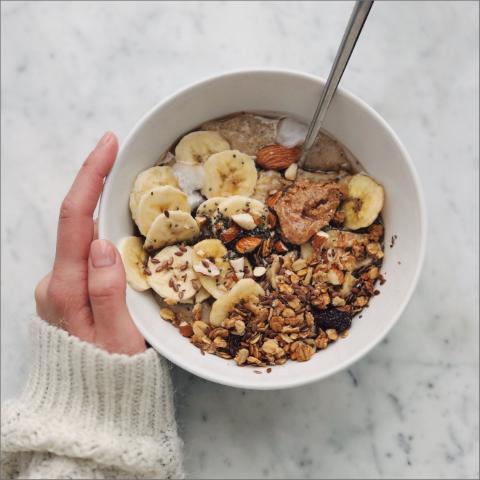Seeds. Though they be but small, they are mighty.
Seeds are all examples of reproductive components of plants, which we eat as a tasty addition to our food. Seeds are FODMAP friendly and a fabulous way to include a variety of macro and micronutrients into your diet.
They are rich in protein, healthy fats and fibre, and contain minerals such as iron, zinc, magnesium, calcium and potassium. Plus, they contain vitamins B1, B2 and B3, all of which help convert food into energy and keep your skin, muscles and brain healthy and functional. Seeds also help regulate weight gain, and reduce risk for chronic conditions such as heart disease and diabetes.
Pretty amazing for something so small, right?
The great thing about seeds is that only a small amount is required to reap the benefits, and because they’re super simple to incorporate into your everyday diet and are especially great in vegetarian or vegan meals as a plant-based fibre and protein source. The key thing to remember is to start with a small amount and increase your intake gradually. Seeds are very high in fibre and too much too quickly could give you some uncomfortable gas and bloating symptoms. Let’s have a look at some common seeds and how you can incorporate them into your everyday diet!
Pumpkin seeds
Pumpkin seeds (or pepitas as you might know them) are an easy way to add a nutritional punch and crunch to your meal. You can sprinkle them raw on top of salads, oats and curries, or toast them in the oven with some spices if you’d like to add some extra flavor to your dishes.
Chia seeds
These little guys are incredibly nutritious for their size. Because of their high soluble fibre content, they can absorb up to 10 times their own weight in water! This means you’ll stay fuller for longer, and they are also a great source of omega-3 fats, making them a beneficial addition to your diet if you don’t eat much fish. Chia seeds are great added to overnight oats or puddings because of their liquid-absorbing abilities.
Flax seeds
Flax seeds are very high in protein, fibre and potassium. They are a great source of lignans, which are a type of antioxidant that have anti-inflammatory effects on the body. It’s best to consume flaxseeds ground up so your body can more easily absorb all the nutrients of the seed. You’ll usually find them in this form at a variety of health food stores and supermarkets. Flax seeds are great used as a substitute for some of the flour in baking recipes or mixed into smoothies and hot oats.
Other great seeds to try?
Hemp seeds, sunflower seeds and poppy seeds are other nutrient dense, delicious options that can also be included in a variety of meals – maybe try some hemp seeds on your brekky, sunflower seeds in your salads, or poppy seeds with your yoghurt and fruit.
As you can see, seeds are extremely nutritious, versatile – and – budget friendly considering the small amount required for each dish. They’re a great way to get more creative with your cooking, too!
Written by Tash Abram & Chloe McLeod
References
Better Health Channel. (2019, June). Nuts and Seeds. Victoria State Government. http://www.betterhealth.vic.gov.au/health/healthyliving/Nuts-and-seeds
Health Essentials. (2021, Jan 13). The 6 Best Seeds to Eat: how to incorporate seeds into a healthy diet. Cleveland Clinic. http://health.clevelandclinic.org/the-6-best-seeds-to-eat/
Nutrition Lectures. (2020). Vitamins and Minerals. University of Newcastle.

